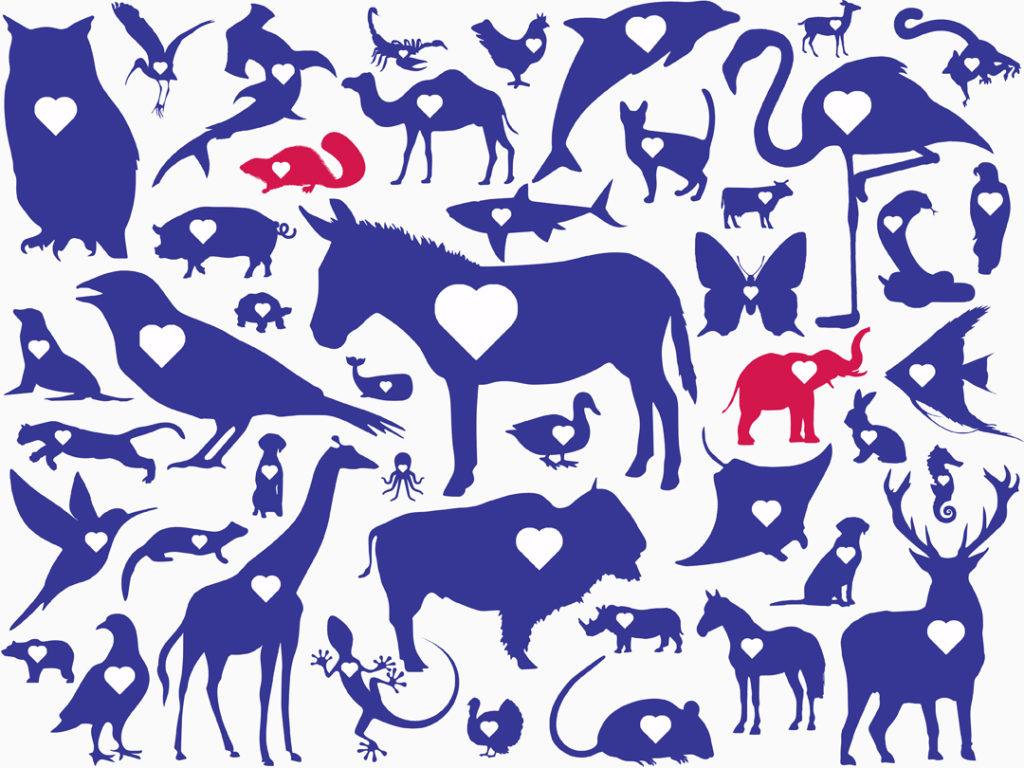
Animal Wellness Releases Detailed Summaries for Democratic Candidates on Animal Issues
Humane-minded voters are urged to study this resource, as AWA steps up its “Putting Animals Into Presidential Politics” Campaign
- Wayne Pacelle
The Democratic field for the President has winnowed a bit, but nearly 20 candidates remain – courting voters, donors, interest groups, and the media in anticipation of the first set of caucuses and primaries coming up early next year in Iowa, New Hampshire, and South Carolina. This is the nation’s most important job interview and each candidate is trying to find that difficult pathway that will allow a break-out moment and eventually a months-long face-off against President Trump, the expected Republican nominee, in the general election. At this stage of the campaign, the discourse on animal protection has been limited even though Americans have a big appetite for robust policy action on the subject.
There is a rising tide of consciousness about animals and their intelligence and social lives. Animals occupy an ever more prominent place in our world, whether its animals in the home, our tourism built around wildlife watching and nature appreciation, or in our awareness of how our daily consumption practices and other behaviors are tied to the treatment of animals in supply chains often stretching thousands of miles.
Animal Wellness Action has already released a comprehensive platform for the candidates to consult and embrace. We’re calling on candidates to commit to policies that stem cruelty, strengthen our communities, and protect people and our environment. Congress and the President should declare animals as “sentient beings” and fortify the legal framework against cruelty to domesticated and wild animals and aggressively enforce those laws.
Today, Action releases 16 summaries on the records of nearly all of the major candidates (we’ll be adding information on Mayor Pete Buttigieg and Governor Steve Bullock soon, as we get more information about their stands on the issues).
Two of the candidates — Senator Cory Booker and former Secretary Julian Castro — have published detailed policy statements on animals on their websites. Two candidates in the race _ Booker and Rep. Tulsi Gabbard — are vegans, and a concern for animals has been part of their motivation in shaping their dietary preferences.
Two candidates who’ve never held public office — Marianne Williamson and Tom Steyer — have been active on animal issues in their private lives, both supporting ballot initiatives against factory farming, and with Williamson serving in a volunteer capacity for animal organizations.
Others, including Joe Biden, have been leaders on these issues during their careers. Senator Bernie Sanders, while not a leader on animal protection, has a nearly perfect voting and cosponsorship record during his long career in Congress and has been outspoken against factory farming. Other candidates, including Congressman Beto O’Rourke and John Delaney, also have nearly flawless records on the topic.
Amy Klobuchar, in contrast to the other candidates, has a decidedly mixed record on animal protection. While she’s sided with animal welfare advocates a number of times, she’s also pushed Congress to remove federal protections for wolves, supported an expansion of some inhumane hunting practices in a “Sportsmen’s Package” and opposed efforts to rein in spending by the cattle and pork industries with check-off tax dollars for lobbying campaigns to block animal welfare reforms. Rep. Tim Ryan often voted with the NRA and the trophy hunting industry, but in recent terms has now more consistently embraced a wide range of animal protection reforms, including to benefit wildlife.
I hope you’ll study their records and then ask the candidates where they stand on these issues. We have posted contact information for all of the candidates. It’s our hope that every candidate publishes a set of positions on animal issues and commits to nominating people to key cabinet positions with a demonstrated concern about these issues.
Our nation should never tolerate cruelty, even if it’s conducted by big industries. All animals deserve humane treatment. We must embrace alternatives to animal exploitation as available. Combating cruelty and punishing perpetrators reduces violence and builds a civil society.